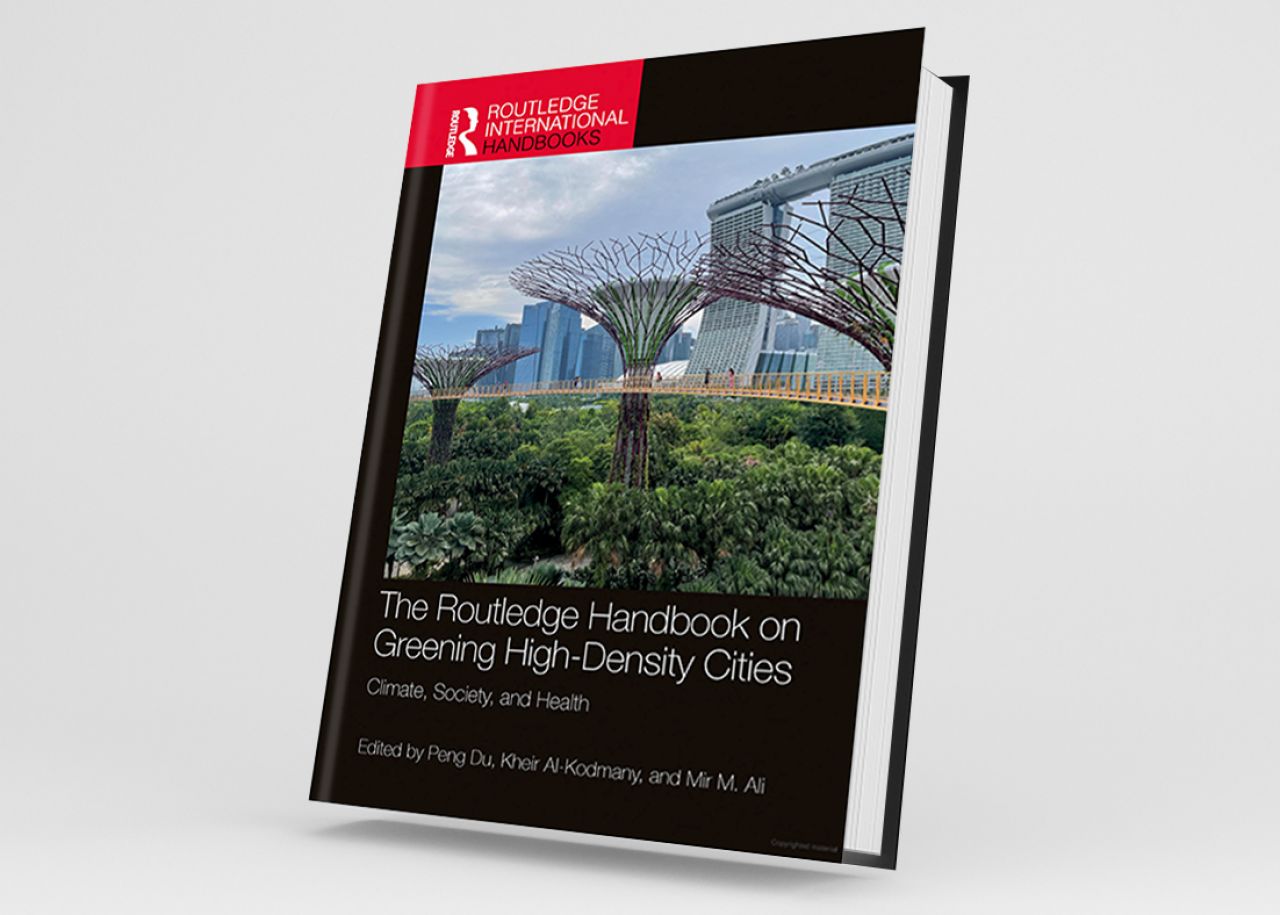July 01, 2024
Stuckeman School professors author chapter in new Routledge handbook

UNIVERSITY PARK, Pa. — A chapter in the recently published “The Routledge Handbook on Greening High-Density Cities: Climate, Society and Health” is authored Stuckeman School faculty members Paul Daniel Marriott, associate professor of landscape architecture, and Dan Willis, emeritus professor of architecture.
Edited by Peng Du, Kheir Al-Kodmany and Mir M. Ali, the book serves as a reference for policymakers, practitioners, academics and researchers to study, design and build high-density cities by integrating green spaces.
Marriott and Willis penned chapter 31 in the publication titled “Light, Air, And Views: The Underappreciated Health Benefits of Balconies.” Their article addresses the renewed appreciation urban apartment dwellers have for outdoor spaces in the form of balconies because of the COVID-19 pandemic.
Marriott and Willis explore the benefits of balconies for the mental and physical health of residents in dense urban environments. They use recent design investigations by their landscape architecture and architecture students in their interdisciplinary urban density studio during the pandemic to reveal best practices for incorporating balconies into the design of tall buildings. They argue in favor of regionally appropriate designs that can be easily adapted and furnished by the building’s occupants, while providing access to sunlight, air and views from within private, controlled spaces.
“During Covid, I was living in my apartment in D.C. — eight floors above the landscape and without a balcony — so the project was very personal for me,” said Marriott. "I was experiencing first-hand the disadvantages of high-rise urban living during a pandemic"
Leading scholars and experts contributed to the new Routledge handbook, which covers such topics as urban heat Islands, green space and carbon sequestration, green space and social equity, green space and public health, biophilic cities, urban agriculture, vertical farms, urban farming technologies, nature and biodiversity, nature and health, biophilic design, green infrastructure, urban revitalization, post-Covid cities, smart and resilient cities, tall buildings and sustainable vertical cities.